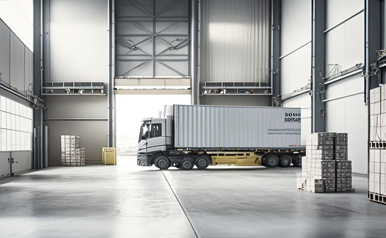Warehouse Cross-Docking Services
Cross-Docking: An IDS Value-Added Service
What Exactly is Cross-Docking?
Cross-docking is a business logistics practice where materials are delivered directly from a manufacturer or one mode of transportation to a customer or another and is considered a lean “just-in-time scheduling” practice. Cross-docking was pioneered back in the 1930s in the trucking industry, adopted by the US military in the 1950s, and is in use at nearly half of all warehouses across the nation. When cross-docking is done well, it is a game-changing practice to reduce or eliminate inventory warehousing storage and costs related to incoming and outgoing shipments of products or materials. At IDS, cross-docking is an essential strategy many of our clients want under the umbrella of our Warehousing and Fulfillment Services when they have decided Third-Party Shipping is right for them.
Are Warehouse Cross-Docking Services Right for You?
What are the Key Considerations in Choosing a Cross-Docking Provider?

Location and accessibility:
If you want to truly optimize transportation costs and transit times for greater logistics efficiency, then be sure to evaluate the 3PL provider’s proximity to suppliers and customers. Also, you will want to know how easily they can access major transportation routes and multiple modes of transportation for maximum flexibility.

Facility capacity and size:
Be sure the 3PL provider has adequate space for cross-docking operations and that their docks are configured for maximum efficiency and cost-effectiveness. The goal here is to confirm the 3PL provider can easily handle the volume and variety of goods coming from you and their other clients.

Technology and systems:
Find out if the 3PL providers you’re considering offer real-time tracking and efficient data exchange. After all, modern technology and integration capabilities are vital to overall logistics efficiency and keeping you in control of your inventory as it moves through the supply chain.

Cross-docking Process:
Evaluate the speed and efficiency of cross-docking processes of each 3PL provider since they directly impact operational agility and responsiveness to customer demands.

Handling expertise:
How much experience and knowledge does each 3PL provider have in handling the specific kinds of products they’d be handling for your business? Do you have unique requirements you should specifically ask about?

Flexibility and scalability:
If your business is poised for potential rapid expansion, you want to be sure a 3PL provider can scale up to meet your changing requirements.

Costs and pricing structure:
The higher cost-effectiveness is on your priority, the more weight you’ll want to put on the transparency of a 3PL’s pricing so you can adequately compare options and achieve your cost optimization goals.

Communication and reporting:
You want a 3PL cross-docking services provider to show effective communication and reporting capabilities so your business can make informed, data-driven decisions.

Customer support and service:
When issues arise or requirements change, you want to know a 3PL’s customer support and service functions are easily accessible, highly responsive, and squarely aimed at excellence in terms of quality.



